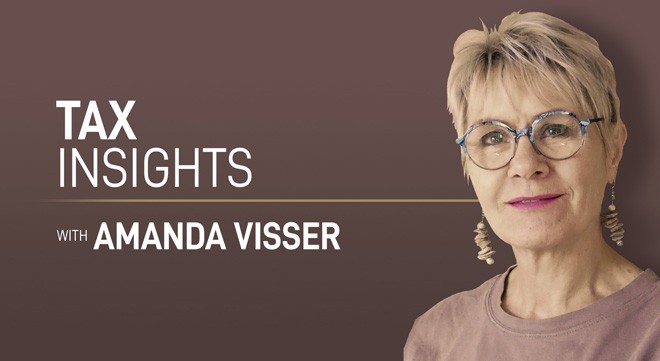Corporate taxpayers are not convinced that the recently revised service charter published by the South African Revenue Service (SARS) has led to improved service from the tax agency.
Half of the participants in the PwC Taxing Times survey indicated they are not “fully satisfied” with the service. Only 3% are convinced that service delivery improved.
SARS says it welcomes all forms of feedback from stakeholders. “We are analysing the report and integrating our data to pinpoint areas that require further enhancement.”
Spokesperson Sipithi Sibeko says they measure the service charter index “extensively”, which covers aspects of the survey. SARS is actively working on enhancing taxpayer experiences by addressing specific aspects of the service charter, he says.
The PwC survey reflects the impressions of 206 corporate taxpayers across 17 industries. The survey was conducted from May to July 2024 and posed questions about the verification and audit processes, disputes, and SARS’s service delivery.
SARS notes that although the survey is a perception survey covering 209 corporates, it has more than three million active corporate taxpayers in its registry. “Therefore, the survey results should be viewed with this context in mind,” Sibeko adds.
Time for audit
The survey looked at the time it took SARS to conclude audits of taxpayers who are registered with the large business and international (LBI) unit and those who are not.
Of the participants who indicated that their corporate income tax audits were resolved in one to three months, only 33% were registered with the LBI, while 67% were not.
Elle-Sarah Rossato, PwC’s director of tax controversy and dispute resolution, says this indicates that participants who were not registered with the LBI, and who did not have designated relationship managers, actually had their audits finalised in a shorter timeframe than those registered with the unit. Taxpayers who are registered with the LBI unit believe their designated relationship managers are “inundated” with their caseload.
The survey shows that 75% of the participants (registered with the LBI) indicated that their audits were resolved in six to twelve months compared to 25% that were not registered with the unit.
“It can be argued that SARS’s recruitment drive for specialist skills is still maturing and, therefore, more promising results should become more visible going forward,” the survey found.
Audit findings
Following the audit, SARS must issue a letter of audit findings, and after considering the taxpayer’s response, SARS must provide the taxpayer with a letter of assessment (finalisation of audit letter). This document should include the grounds of assessment, including the basis of adjustments, as well as the factual and legal grounds upon which SARS relies for the imposition of understatement penalties.
In this year’s survey, 23% of participants indicated that SARS provided “sufficient” grounds to understand the basis for the assessment, compared to 21% in 2023. More than 40% of participants indicated that the grounds of assessment were “somewhat sufficient” compared to 34% in 2023.
In aggregate, 65% of participants indicated that SARS provided sufficient explanations to understand the basis for the assessment raised. This is up from 55% in 2023.
There has been a significant decrease (36%) in the number of participants who felt that SARS supplied somewhat insufficient or insufficient grounds to understand the basis of the assessment. In 2023 it was 45%.
“This is a significant improvement, and we encourage SARS to continue improving on the quality of grounds provided. It assists taxpayers in understanding assessments issued and making informed decisions in considering options available in terms of next steps,” says Rossato.
Sticky points
Understatement penalties remain a sticky issue. This year, participants were asked about SARS’s attitude when levying understatement penalties, and 44% of participants found SARS to be “aggressive” and 27% said SARS was “moderately aggressive”.
Another sticky point is the issue of “voluntary” in the Voluntary Disclosure Programme (VDP).
This year, 33% of participants indicated that SARS declined their application because it was not “voluntary”, up from 27% in 2023.
PwC says this suggest that taxpayers may still struggle to navigate this area of tax law. SARS says in response it has worked to improve the programme’s effectiveness and consulted widely with other stakeholders.

Taxpayers indicated they struggle to comply because tax returns are becoming more complicated, and the number of audits and requests for information are making it difficult to comply.
SARS says its data shows that over the past three years there has been a decline – by more than 500 000 – in the number of audit cases. This has partly been made possible by the use of third-party data. “SARS continues to work tirelessly to make it easy and seamless for taxpayers to comply,” says Sibeko.
Amanda Visser is a freelance journalist who specialises in tax and has written about trade law, competition law, and regulatory issues.
Disclaimer: The views expressed in this article are those of the writer and are not necessarily shared by Moonstone Information Refinery or its sister companies. The information in this article does not constitute financial planning, legal, or tax advice that is appropriate to every individual’s needs and circumstances.




Am trying to change Public officer on a very small business I am involved with. The previous Public Representative has passed away and we want to wind up the business. Almost an impossibility with SARS. The PDF’s they use cannot be accessed by my version of Adobe, which is a cloud-based current version. The website wont provide me with access and I am told that my tax number is involved with a current Public Official change – it is the same one and all I am trying to do is upload what SARS have told me to upload. Tried to call – number 1,219 in queue, it doesn’t move. SARS are dreaming if they believe they have improved or deliver a quality service. Think of the money tied up in that value chain that could be driving commerce. A disgrace!